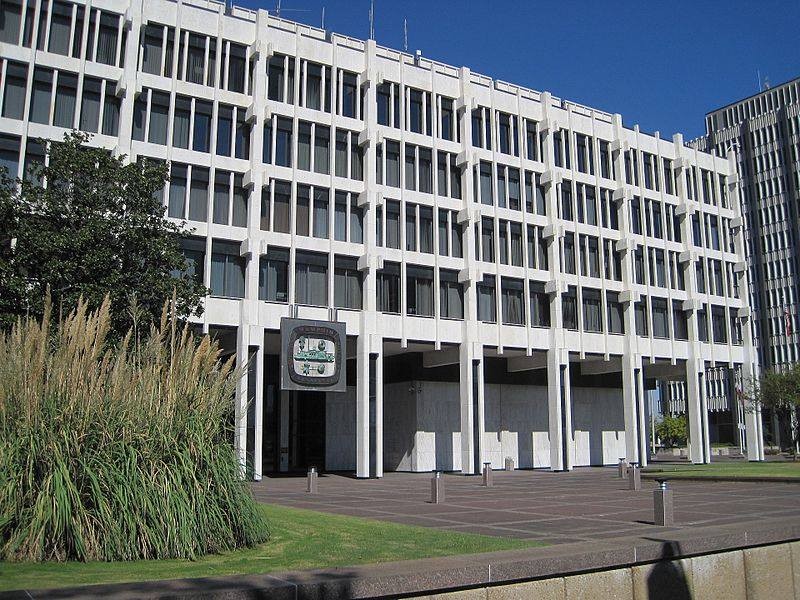Southern politicians tout the region’s “business friendly” economic development policies but a new study finds those policies are rooted in racism and have failed most people who live in the region.
The October study is from Washington D.C.-based Economic Policy Institute (EPI), a nonpartisan think tank focused on “the needs of low-and-middle-income workers in economic policy discussions.” The study looks at job growth, wages, poverty, and state GDP. The data, EPI said, “show a grim reality.”
The group characterized the Southern economic development model as one with ”low wages, low taxes, few regulations on businesses, few labor protections, a weak safety net, and vicious opposition to unions.”
“…it is leaving most Southerners with low wages, underfunded public services, a weak safety net in times of economic downturns, deep racial divisions, and high rates of poverty.”
Chandra Childers, Economic Policy Institute
“While this economic model has garnered vast amounts of riches for the wealthiest people across the region, it is leaving most Southerners with low wages, underfunded public services, a weak safety net in times of economic downturns, deep racial divisions, and high rates of poverty,” said report author Chandra Childers, a senior policy and economic analyst for EPI’s Economic Analysis and Research Network.
Here are a few key takeaways from the report:
• Job growth across the South has failed to keep up with population growth. The share of prime-age workers (ages 25–54) who have a job is lower than the national average in most Southern states.
• Workers in Southern states tend to have lower earnings. Median earnings in nine Southern states are among the lowest in the nation, even after adjusting for lower cost of living in the South.
• Poverty rates are above the national average in most Southern states. Louisiana and Mississippi have the highest poverty rates in the nation, with nearly 1 in 5 residents living in poverty.
• Child poverty is highest in the South compared to any other region. At 20.9 percent, child poverty rates in the South are 3.7 percentage points higher than the region with the next-highest child poverty rate — the Midwest (17.2 percent).
• Southern states are among the lowest-GDP states. Nine of the 15 states with the lowest per-worker GDP are in the South.
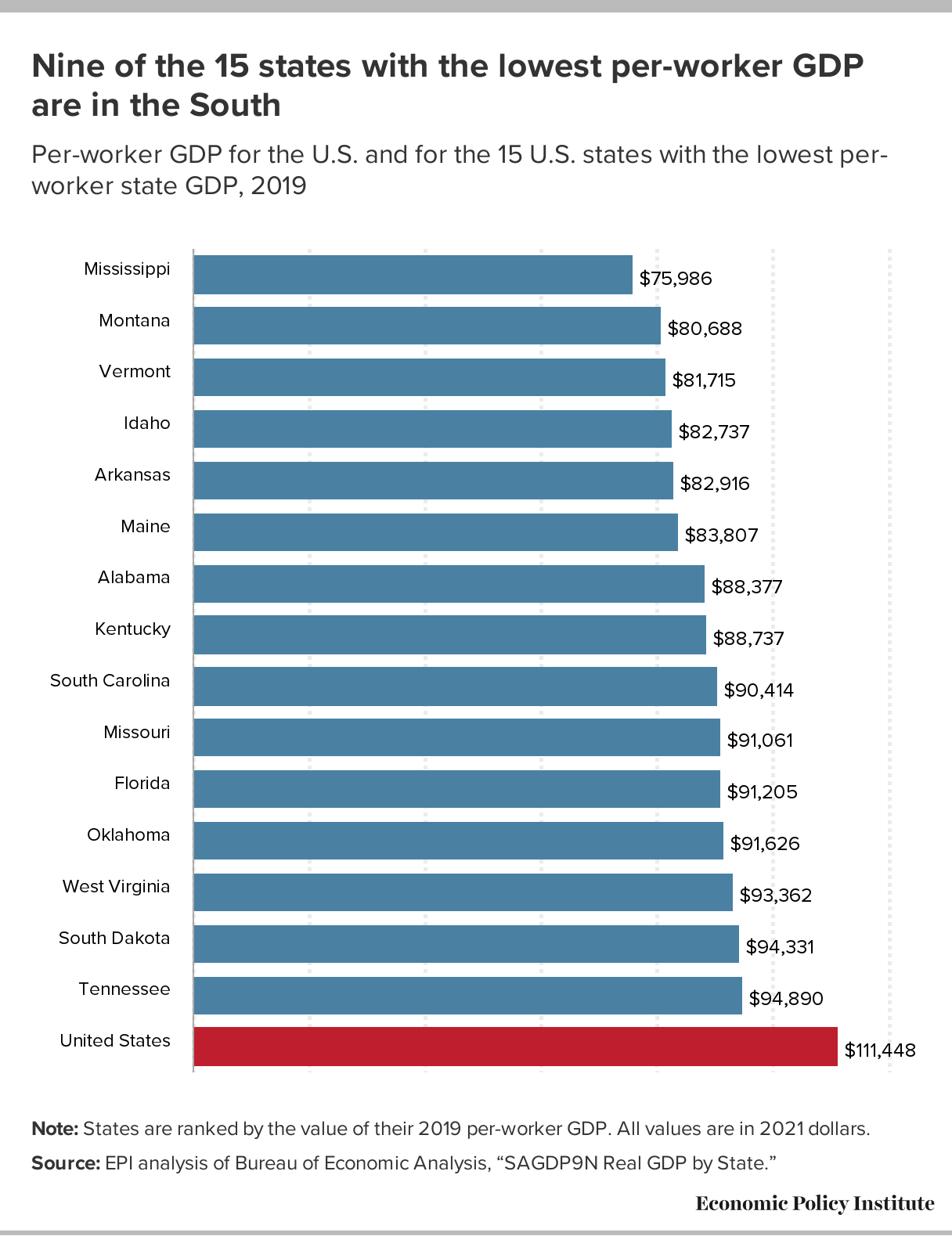
The racist remnant of the Southern economic development model, according to EPI, is that business owners in the South continue to rely on “large pools of cheap labor,” particularly Black and brown people. The study points back to slavery in the South when Black people were not paid at all and then to Pullman porters who were “forced to rely on tips” after slavery ended. Now, incarcerated individuals can be required to work with no pay at all, the study said.
”The racist roots of this model have been obscured and have been replaced by a more acceptable ’pro-business’ narrative,” reads the study. “The pro-business narrative suggests that low wages, low taxes, anti-union policies, a weak safety net, and limited regulation on businesses creates a rising tide that ‘lifts all boats.’”
Tennessee policies fit into this model, the study said, as the state has no minimum wage, no income tax, a high sales-tax burden for all residents, no expanded Medicaid program, a low per-worker GDP, and more.
Poverty is higher in Tennessee than in other parts of the country. This is especially true for people of color and particularly women of color, according to the data.
Similarly, wages are lower in Tennessee than in other parts of the country, and again it’s especially true for people of color and particularly women of color, according to the report.
“On average, Black women in the South are paid $35,884 at the median and Hispanic women just $30,984, compared with $58,008 for white men,” reads the report.
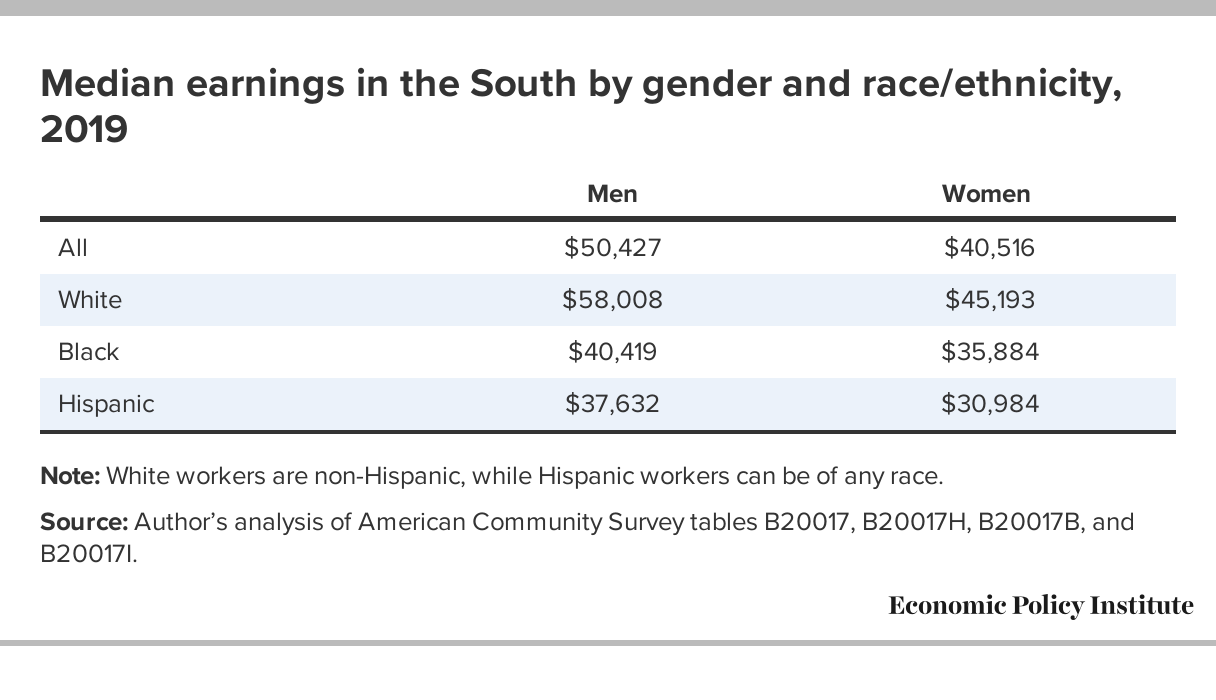
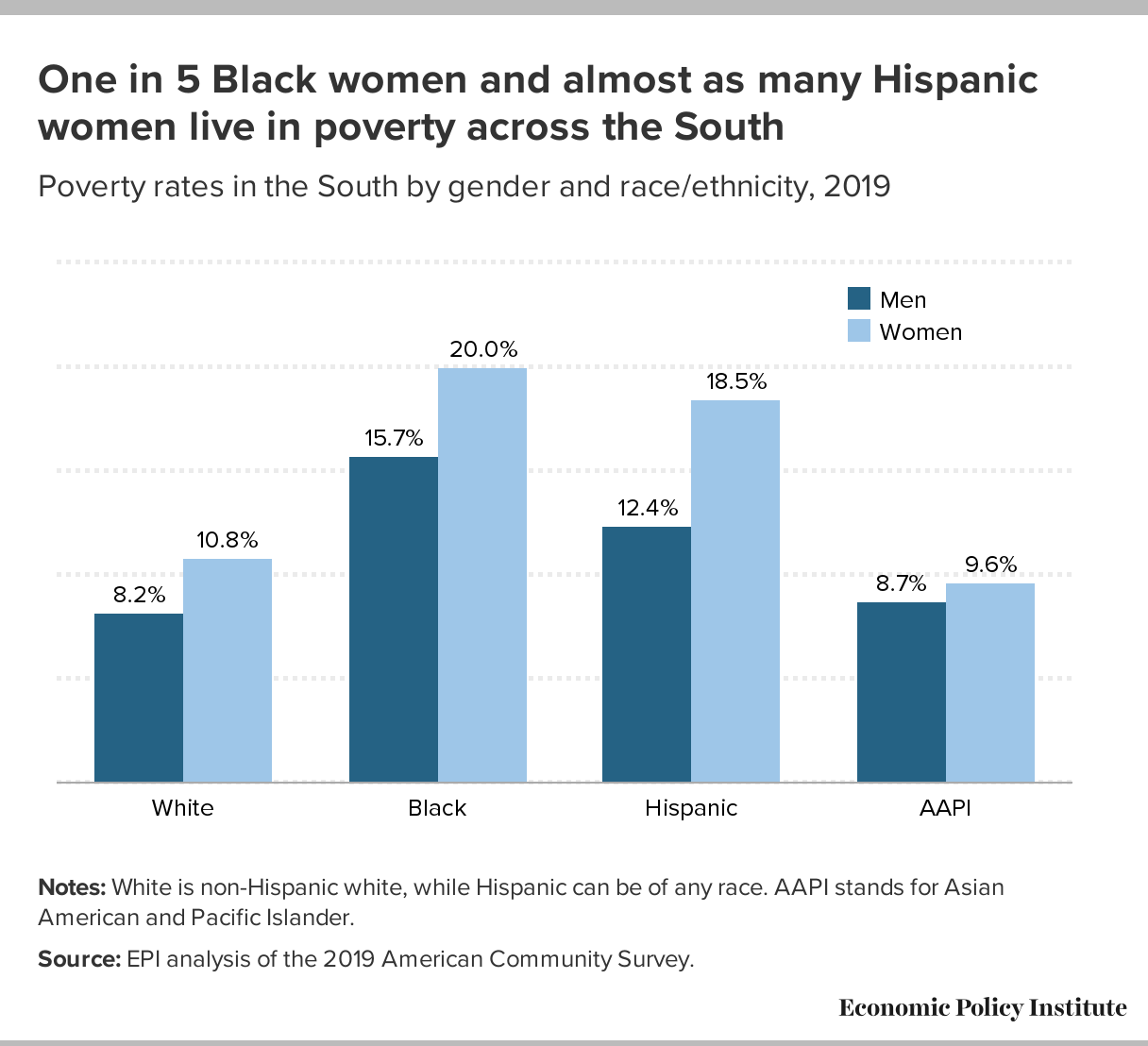
If the Tennessee economic model is working like politicians claim, where does the money go? The study says it goes to the wealthiest Tennesseans. The top 20 richest Tennesseans share more than half (51 percent) of the state’s total income. The top 5 percent share 23 percent of of the state’s aggregate income. The bottom 20 percent share just 3.4 percent.
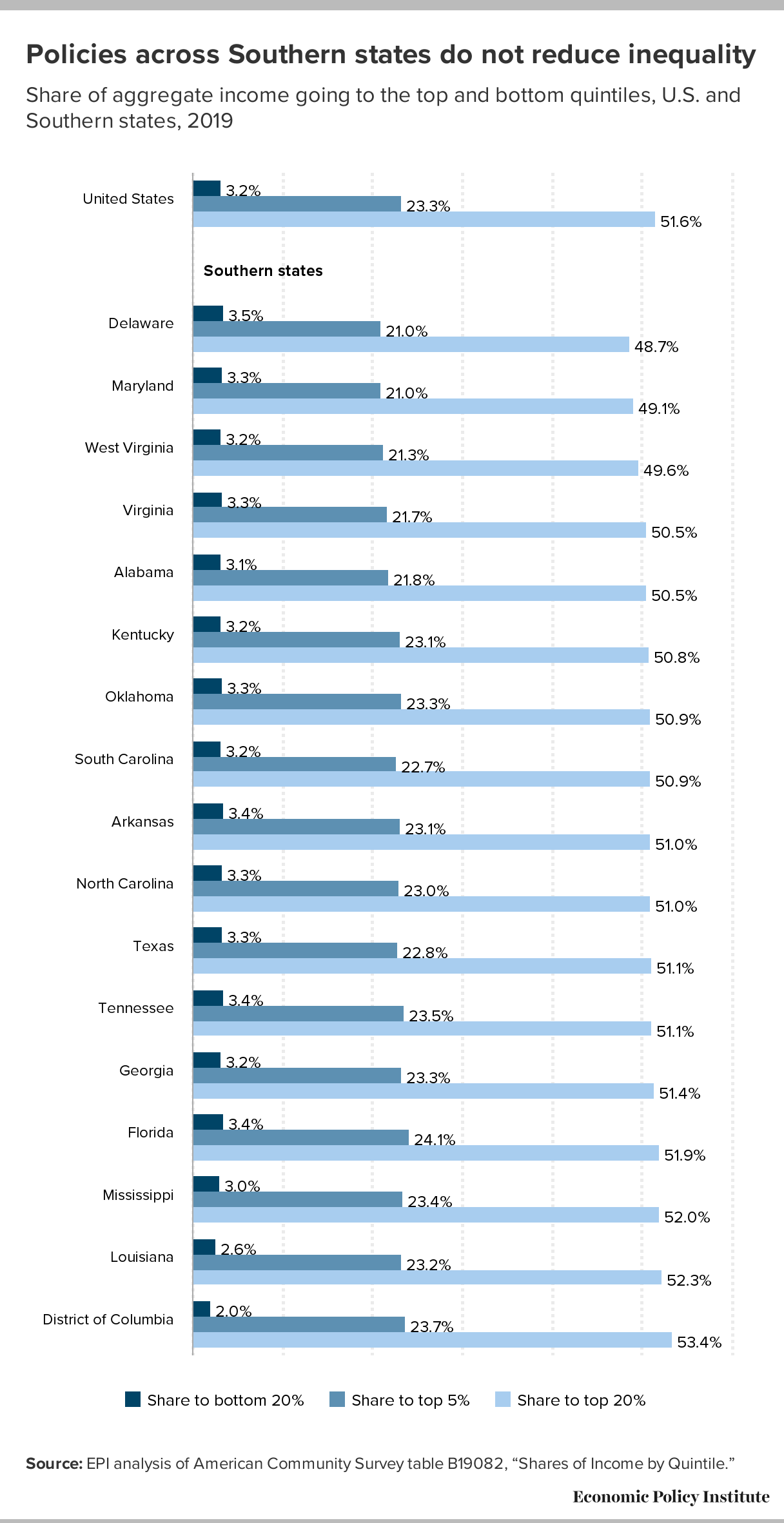
“Many Southerners may believe their politician’s arguments that the Southern economic development model will deliver good, well-paying jobs,” reads the report. “However, the data presented here show clearly and emphatically that this model has failed those living in Southern states.”

